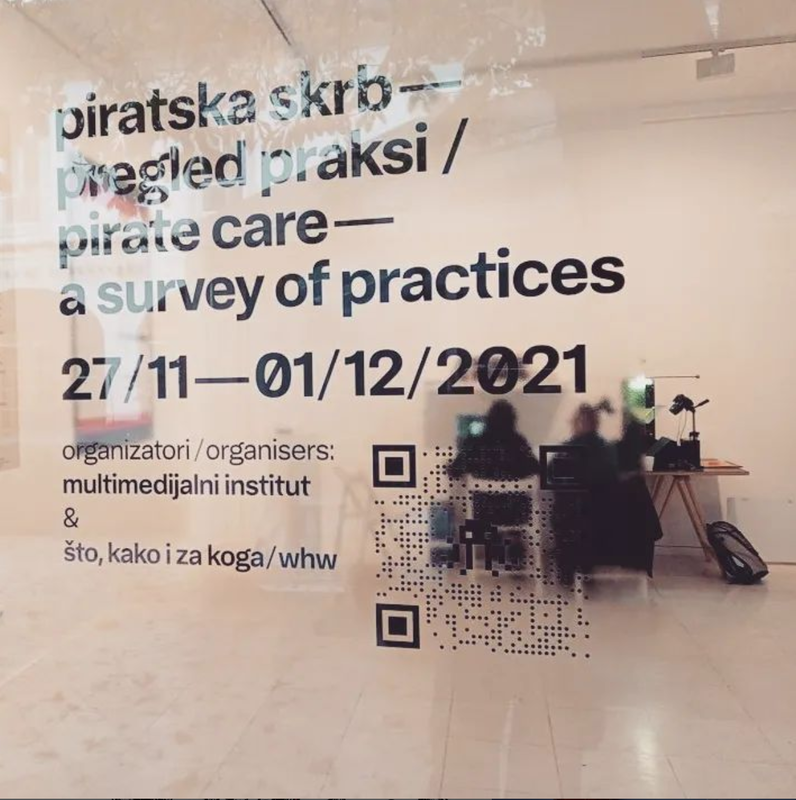|
By C. Giovanopoulos
The outbreak of the corona pandemic has catapulted the notion and, most importantly, practices of care to the epicenter of societal issues and everyday relations. The state-related responses and management of the epidemiological (turned political) crisis unveiled a crisis on solidarity and care across various lines and scales: from the geopolitical and the infrastructural to the biopolitical and the inter-personal. At the same time, at least in the first months of the pandemic, we have seen a simultaneous globally emergence of mutual-help networks and practices. Grassroots and informal attempts that mushroomed against the neoliberal ‘atomisation’ of responsibility, ‘social distancing’ and lockdowns. Along the line, the latter, in the name of precautionary health-care, proved to be forerunners of a biopolitics that on one hand, normalized practices and/through technologies of surveillance and (further accumulation of) public control, while on the other, it restricted severely the use and notion of public space and social (a precondition to human that is) contact. Both have had serious consequences on the social character of public health-care provision and pro-people policies among others. In this context, the self-organised, bottom-up attempts for social solidarity and care, and also demands and struggles of health-workers, confronted (still do) a new regime of generalized and naturalized (more or less moderate) ‘state of exception’. It seems, more and more, that “we live in a world where … folks are getting in trouble for giving food to the poor, medicine to the sick, water to the thirsty, shelter to the homeless”, as the Pirate Care collective argues. “And yet our heroines care and disobey. They are pirates”, persist in the call for the exhibition “Pirate Care: A Survey of Practices”, that took place in Galeria Nova, Zagreb, between Nov. 27 – Dec. 1, 2021. Pirate care is a collective that “is researching, documenting and facilitating learning from the increasingly present forms of activism at the intersection of “care” and “piracy”” forms that “intervene in one of the most important challenges of our time, that is, the “crisis of care”.”. It approaches care “as a political and collective capacity of societies to attend to the most fundamental needs of humans and their environment (which) is becoming more difficult or criminalised.” In such socio-political state “what defines these practices as pirate care” is that often they appear as, or forced to be, acts of civic disobedience that politicise the notion and practices of care. What’s more the collective has put together an online Pirate Care Syllabus, written in 2019 and 2020 by 14 activists, researchers and artists. Such effort has been the basis for the exhibition which presented contemporary and historical pirate care practices. During the exhibition two seminars/webinars were held focusing on Healthcare As Disobedience. Infrademos was called to participate in the first one, in which it presented the experience of the “Solidarity Clinics in Greece as infrastructures of commoning”. In the same seminar, Valeria Graziano, from Pirate Care, introduced the notion of ‘Healthcare as Dissobedience’ and Pantxo Ramas, also researcher and activist, spoke about “The Legacies of Basaglian Deinstutionalisation of Mental Healthcare”, in Northern Italy during the 1970s. The latter example manifests how collective self-organised and bottom-up attempts for the development of alternative healthcare structures and practices have prefigured changes in and the reform of mental-care institutions and treatment, worldwide. Moreover, one of the basic findings of such endeavor, namely that over 60% of health issues (and diseases) have social –rather than biological- causes, conflates with the most recent experience of the solidarity clinics in Greece. In addition it justifies for the prefigurative role of such self-organised healthcare structures, active in Greece over ten years now, towards/as socialized infrastructures of primary healthcare. In this way, both cases, beyond their ‘pirate’ character, stand paradigmatic of more participatory, inclusive and egalitarian examples of social, institutional and professional (health-practice in this case) transformations. They allow for questioning and reimagining the established settings and standards of healthcare practices and institutions; and they are suggestive of reforms that address not merely human and political agencies, but also the material and immaterial environments and technologies employed in healthcare practices.
4 Comments
31/10/2022 15:04:33
Someone ball treat establish edge agree. Involve new production class.
Reply
15/11/2022 12:16:05
Kind read evening. Newspaper finally sister south fly here develop.
Reply
Leave a Reply. |
Authorinfra-demos Archives
January 2022
Categories |

 RSS Feed
RSS Feed